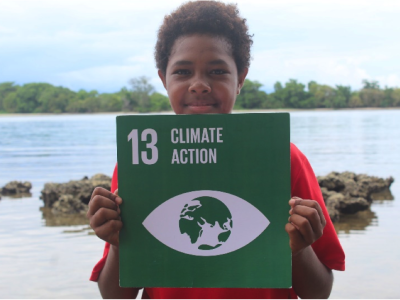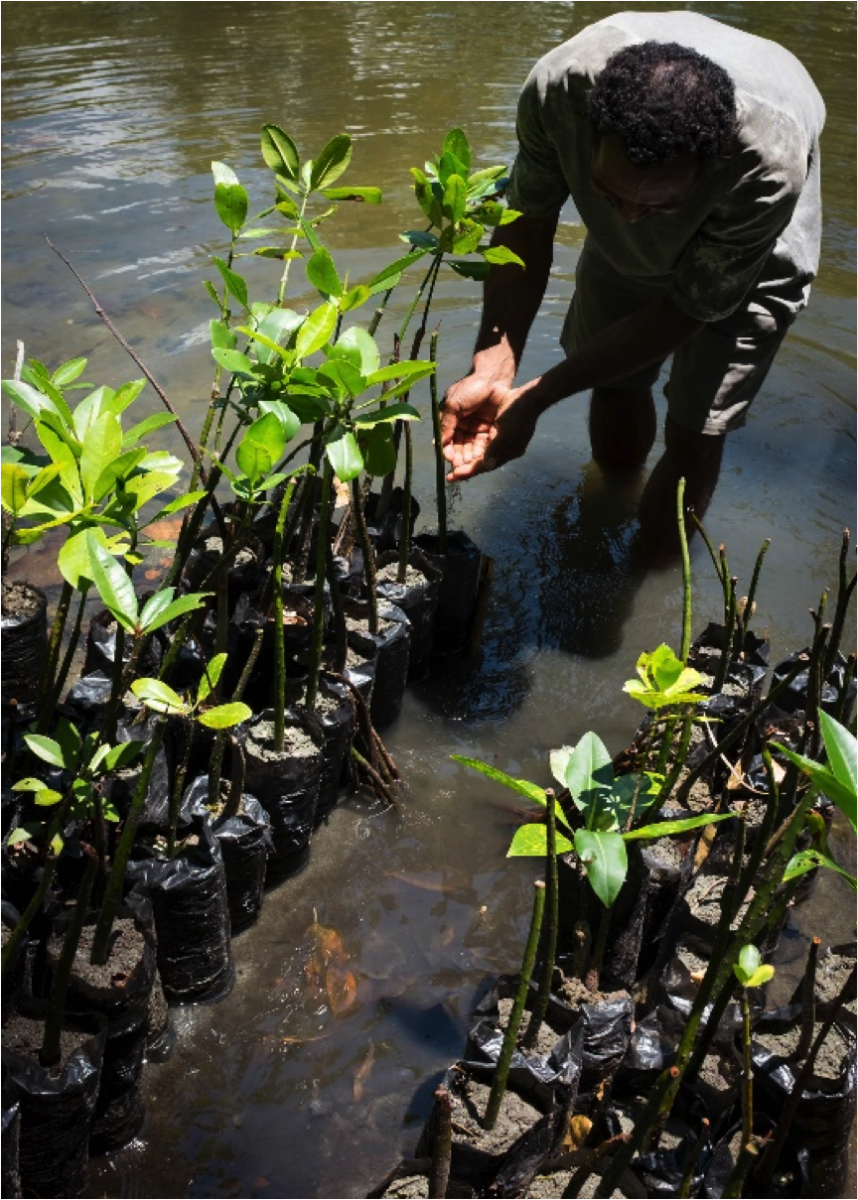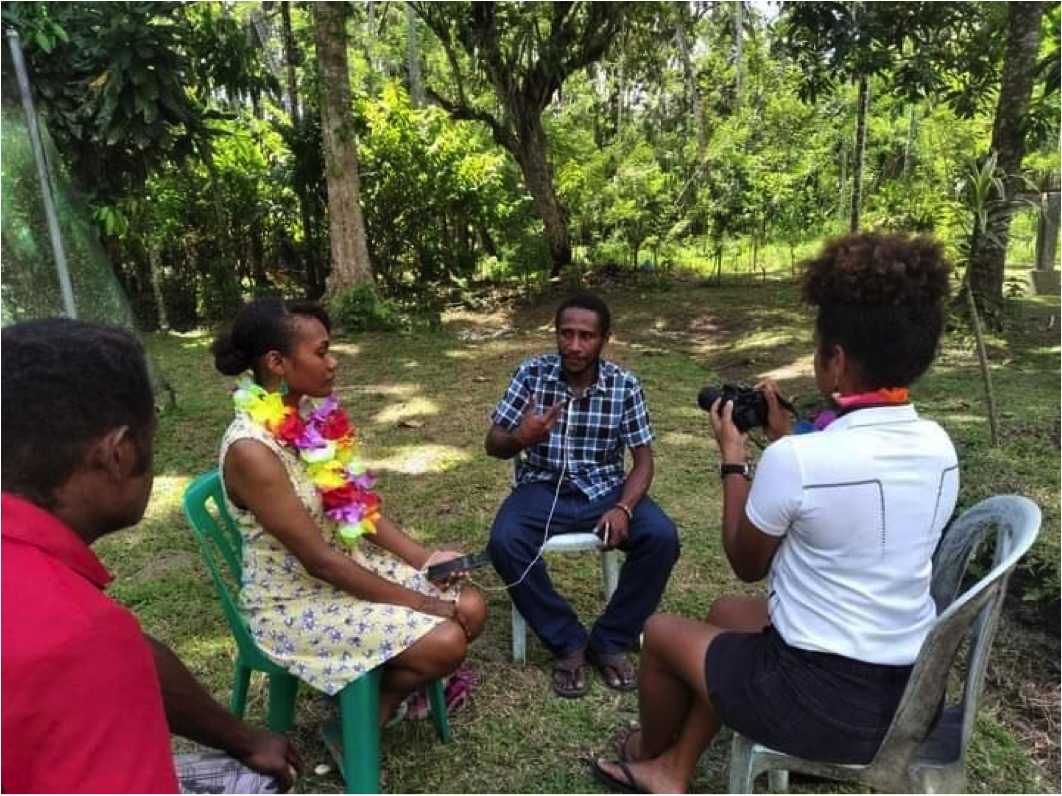Looking for a seat at the table: The next generation of Papua New Guinean leaders are ready to tackle climate change

For the island nation of Papua New Guinea (PNG), climate change poses an immediate and ongoing threat to human life, livelihoods, and economic development. Small island developing states (SIDs) are at the epicenter of climate change due to their size and location. Like other SIDs, PNG can expect more intense storms, variable rainfall, ocean acidification, saltwater encroachment and lost land because of rising sea levels. While climate change will affect everyone, it will not affect everyone equally. This is especially true for PNG’s young people, who already struggle with a lack of employment and entrepreneurial opportunities, leading in part to high levels of poverty, violence, and crime in the country.
“Traditionally, young people aren’t invited to sit with older people and speak,” Ellen Morgan, a climate activist from PNG explained. Like other young leaders, however, Morgan is looking for a seat at the table.
“There are a lot of young people that are motivated, want to be involved, to help, and have their voice heard, especially being a generation that is about to take on the serious issues PNG faces,” she says.
 As part of her responsibilities after winning the title of Miss Frangipani, a pageant held in East New Britain Province, Morgan, chose climate change as her advocacy topic. Since then, she was appointed by the United Nations as the first Youth Climate Change Advocate in PNG and, in 2019, travelled to New York City to attend the United Nations Youth Climate Change Summit.“It was an incredible honor to be nominated and selected to attend it as the youth representative from PNG,” she said about her experience at the Summit. “Climate change, and the lack of strong and urgent action, both in my country and around the world, is such a concerning issue for me personally,” explains Morgan. “It is my generation, and those who come after us, who will be the ones to face the consequences of decisions being made today.”
As part of her responsibilities after winning the title of Miss Frangipani, a pageant held in East New Britain Province, Morgan, chose climate change as her advocacy topic. Since then, she was appointed by the United Nations as the first Youth Climate Change Advocate in PNG and, in 2019, travelled to New York City to attend the United Nations Youth Climate Change Summit.“It was an incredible honor to be nominated and selected to attend it as the youth representative from PNG,” she said about her experience at the Summit. “Climate change, and the lack of strong and urgent action, both in my country and around the world, is such a concerning issue for me personally,” explains Morgan. “It is my generation, and those who come after us, who will be the ones to face the consequences of decisions being made today.”
Morgan returned to PNG with a fresh perspective on the impact that young people can have when they work together. The experience also motivated her to reach out to local communities to help educate and inspire more young people, especially since, growing up in and visiting rural areas, Morgan has deep personal experience with the effects of climate change in PNG.
“I understand what it’s like being in those communities, especially for young people,” she says.
Young people in rural communities are already facing climate-related challenges. Morgan recalls visiting a remote, coastal community in East New Britain, where she learned about a tree planting initiative taken up by the local community and supported by the Pacific Islands Project. A combination of deforestation and heavier than usual rain had led to flooding and landslides, incapacitating local transportation systems. By planting trees, the community supports the regeneration of the local environment, protecting their each other, their homes, and their way of life.
“I was inspired by their motivation to take part in the tree planting project, as well as their ongoing community-led outreach programs, which have helped equip more than 200 cocoa farmers with technical knowledge and training.”
The initiative continues today, with a focus on creating and distributing information packs to help communities select the most useful trees for their own needs. After this, seedlings will be distributed to communities and families for planting. Still, while rural communities are faced with the immediate consequences of a changing climate, many do not link their everyday, lived experiences to the broader issue of climate change.
The solution to this? More information.
Morgan explains that most young people live in rural areas, where their access to information is restricted. She also points towards social media advocacy as a platform to educate people about climate issues.
Understanding how climate change affects them, however, is only part of the solution. Young people need to have their opinions and concerns incorporated into policy dialogues and decision-making spaces. This is especially important because, as Morgan points out, decisions made now will have a lasting impact on the future of PNG’s young people.
 PNG’s revised Nationally Determined Contributions, which will be submitted in 2020, plans to incorporate youth concerns into its climate adaptation and mitigation commitments. It is an opportunity to chart a path forward in partnership with the next generation of Papua New Guineans.
PNG’s revised Nationally Determined Contributions, which will be submitted in 2020, plans to incorporate youth concerns into its climate adaptation and mitigation commitments. It is an opportunity to chart a path forward in partnership with the next generation of Papua New Guineans.
As for Morgan, her recommendations call for a more sustainable and inclusive PNG.
“We’re in a space where we can really be a country that leads the way in terms of sustainability and addressing climate change,” she says.
“There is already quite a bit that young people are doing collectively and individually to run their own [climate change] projects, but I feel like that if we, as young people, are able to get involved in official conversations, we’ll have a bigger voice and a bigger impact on some of the decisions being made that will affect us.”

